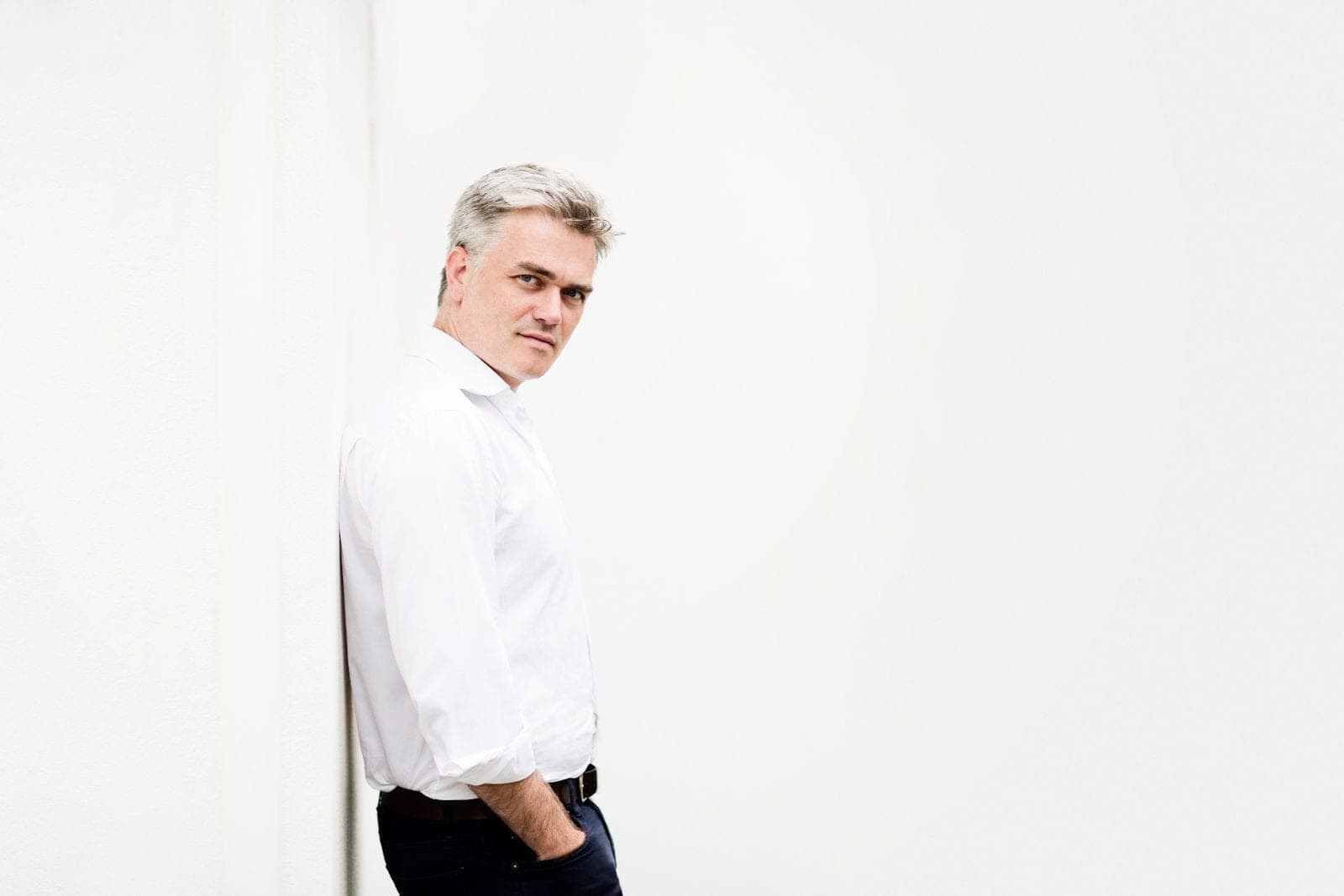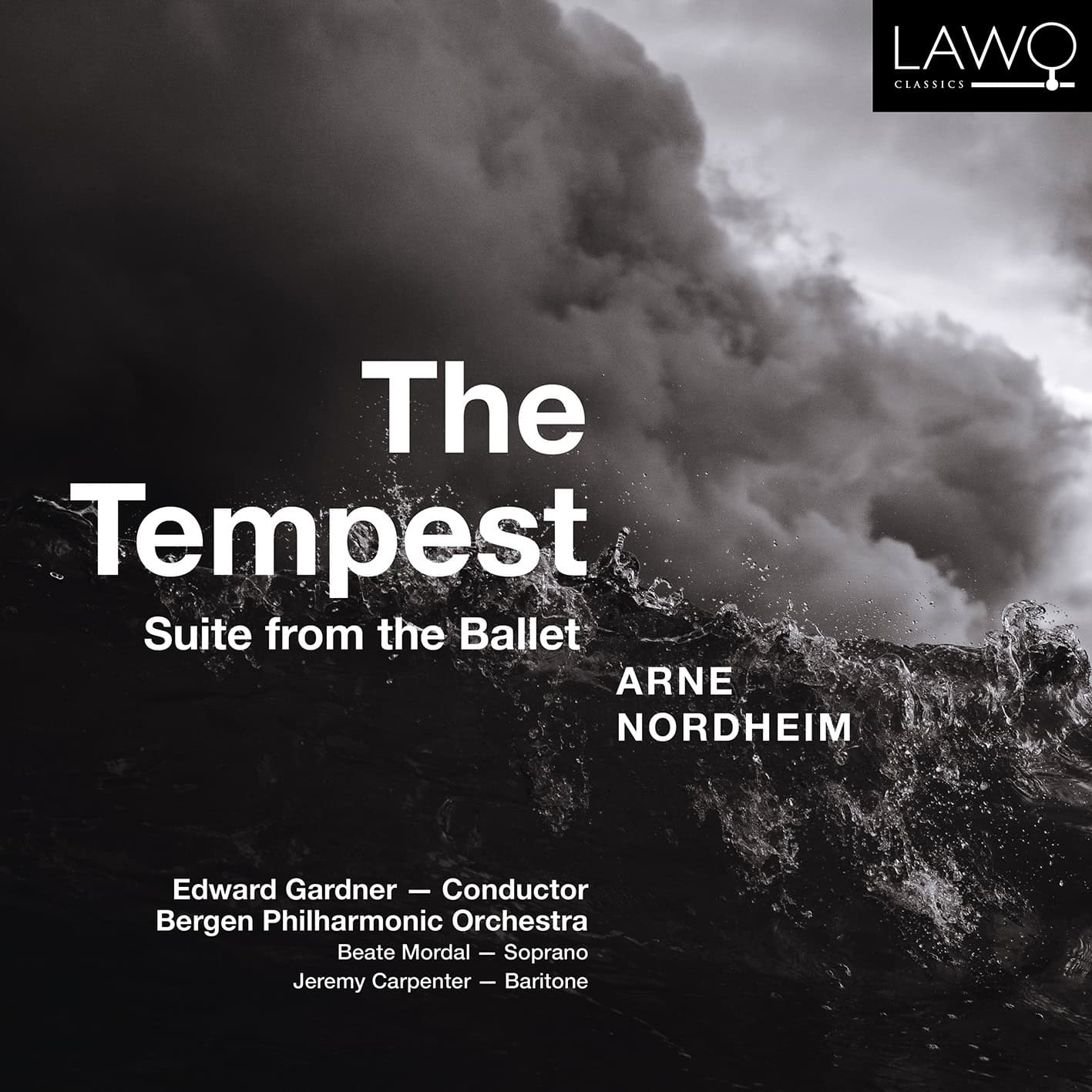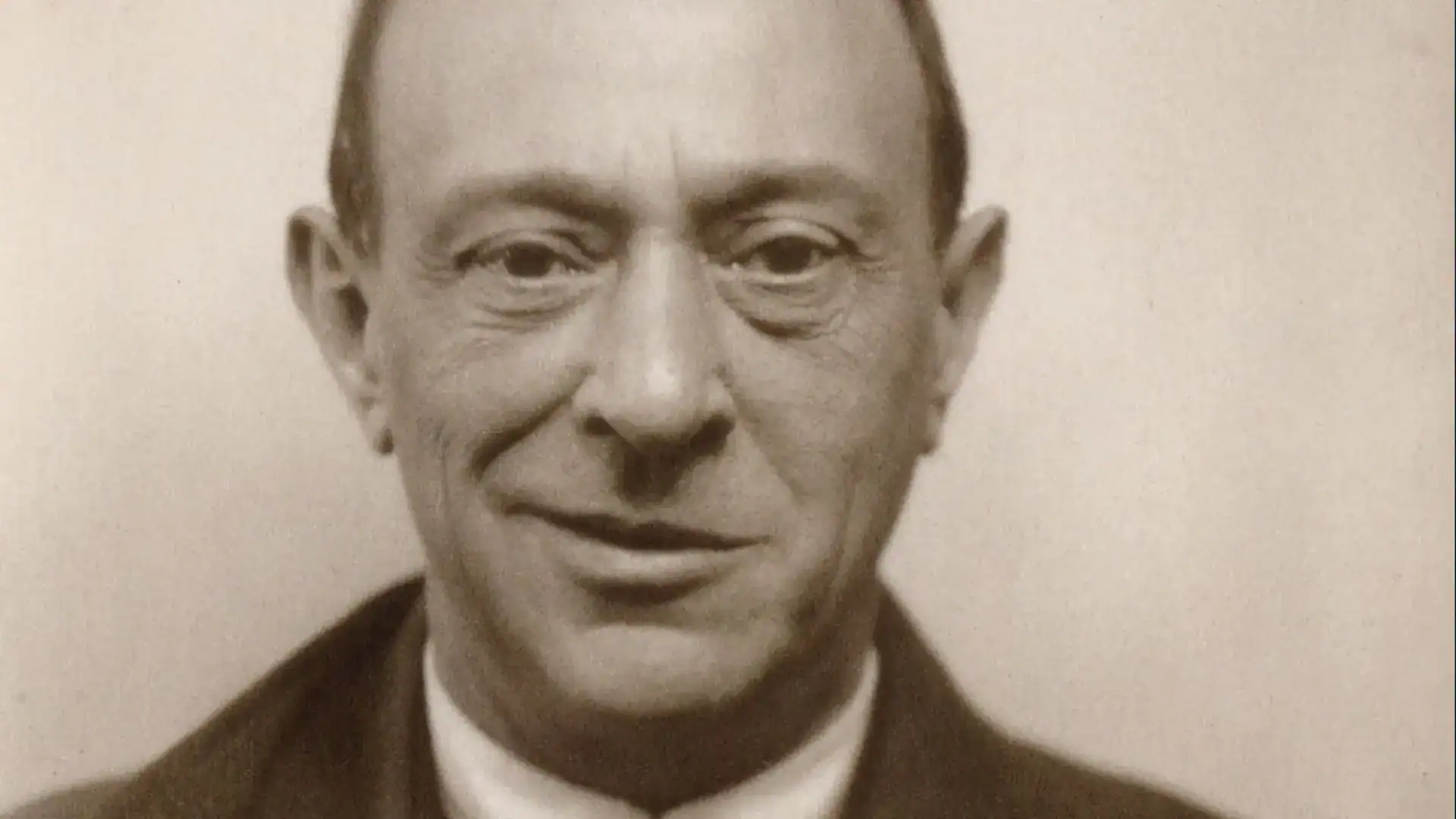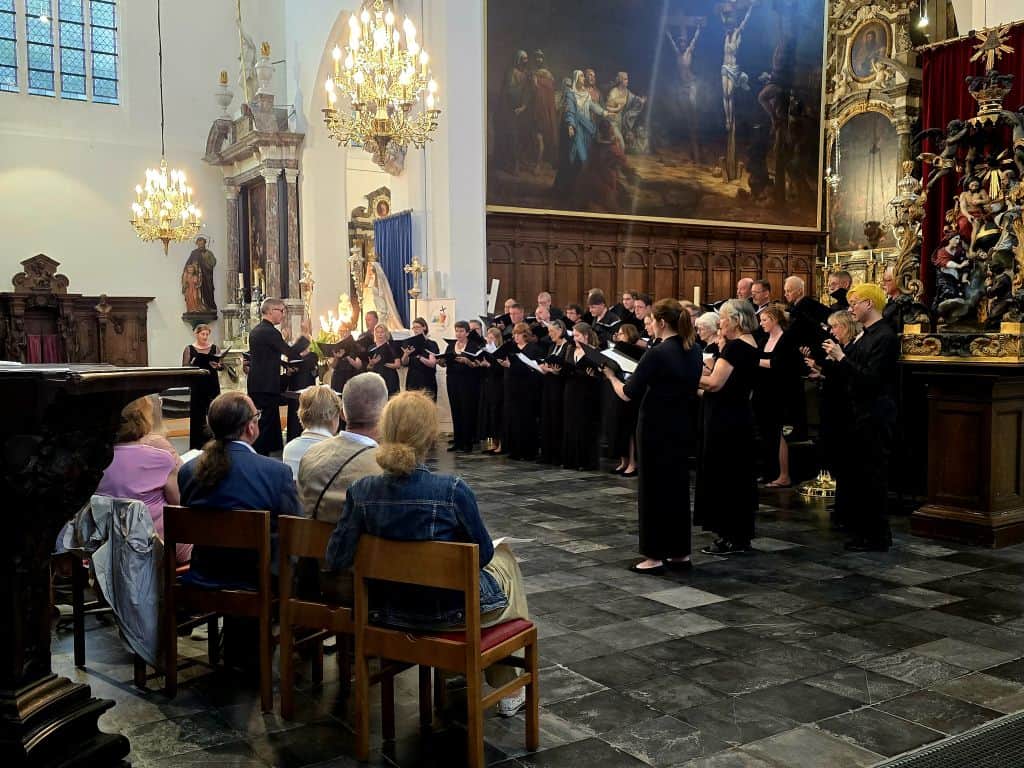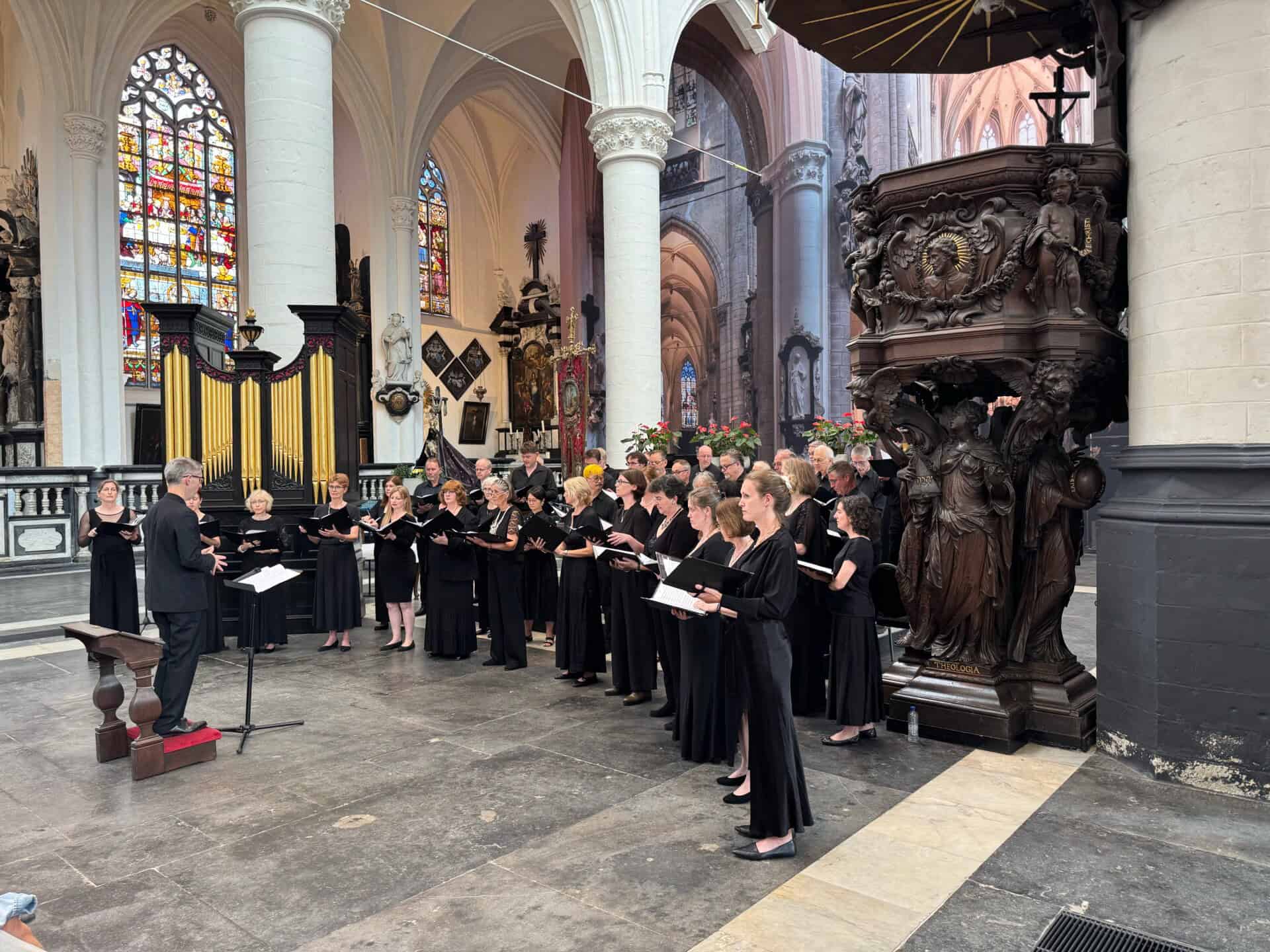1984 was the last time the Bergen Philharmonic Orchestra performed in Belgium. For the first time in 50 years, they’ll be returning to the Queen Elizabeth Hall in Antwerp. Under the baton of Maestro Edward Gardner they’ll perform the music of the Norwegian grandmaster Edvard Grieg. One of the pieces on the program is Robert Schumann’s notorious Piano Concerto, performed by Icelandic pianist Víkingur Ólafsson.
Later in February, they’ll also release a new album featuring another great Norwegian composer. The Bergen Philharmonic Orchestra will revive Shakespeare’s famous tragedy through the Suite from the ballet “The Tempest”, for soprano, baritone and orchestra (1979) by Arne Nordheim (1931-2010).
We got the chance to speak to Maestro Edward Gardner about these two exciting projects…
It’s the first time in 50 years the Bergen Philharmonic Orchestra will be returning to Antwerp. So for us, it’s really exciting to welcome you.
Really? Has it been that long? The last time I was there, I performed with my other orchestra, the London Philharmonic Orchestra. I believe that was about six months ago. I’m delighted to return to that wonderful, golden concert hall with the Bergen Philharmonic Orchestra.
You’ll be opening the evening with a lesser-known work by Edvard Grieg (1843-1907), the Funeral mars for Rikard Nordraak (1866). Can you tell us something about this piece that makes it perfect as a starter?
It’s an incredibly powerful piece. Grieg is mostly known as a miniaturist. Especially in his piano and orchestral music. But what makes this piece special is that it is a throughcomposed, longer stretch of music. It makes you think of Wagner. Like Grieg has been listening to “Siegfried’s funeral march” from the Ring Cycle. It also has an incredible, emotional debt to it.
And Grieg being a composer from our home town makes it special. Performing this piece together with works by Schumann and Rachmaninoff is an exciting experience for us as an orchestra.
For the second piece, the Schumann Piano Concerto, you invite a regular guest of the orchestra namely Víkingur Ólafsson.
He’s a wonderful colleague and a friend of the orchestra. Víkingur is a soloist I love working with. He’s a true collaborator. The great soloists are often the ones that include the orchestra in their artistry. And he does that beautifully.
After the break, you close the evening with the Symphonic Dances by Sergei Rachmaninoff. A wonderful piece that has almost a transcending or universal feel to it.
It’s for sure a composition that is multi-layered. You can take it as an extraordinary orchestral showpiece; you can take it as a celebration of America; or you can take it as something incredibly homesick to what he left behind. For me, that third option is the most interesting one. You have this faithful theme with the Dies Irae, a recurring topoi through Rachmaninoff’s music. This theme truly binds it all together. And even with the virtuosity at the ending, there is this dark undertone. That is something that we normally associate with Shostakovich but that is also present in this Rachmaninoff composition. That darkness makes it not just an American showpiece. And that tension between the dark undertone and the virtuosity is what makes this piece so interesting for me.
What makes you combine these three composers in one program?
There is not so much connection between the three but together they make a beautiful concert. Plus the Rachmaninoff piece is a work the orchestra and I have journeyed with a lot. We love performing it together. Every time it remains fresh and exciting.
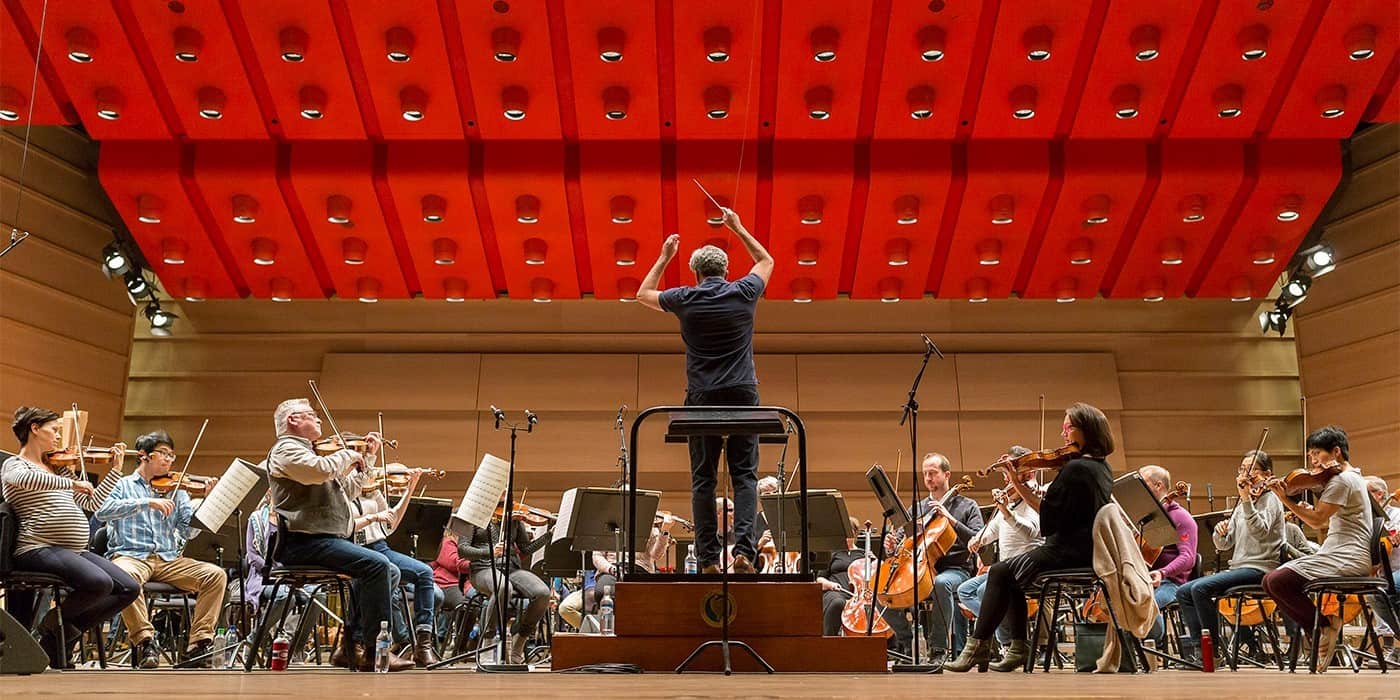
Later this month, you and the orchestra release a new album featuring another Norwegian composer Arne Nordheim (1931-2010). For me, a wonderful discovery since I hadn’t heard of him yet but in Norway, he is one of the most significant composers of the second half of last century and the beginning of this one. Plus your orchestra has a close connection with him.
The community in Bergen has a close attachment to Nordheim’s music. For example, there is this new ensemble named BIT20 that works specifically with him. “The Tempest” Suite is the first piece of him I did myself. So it’s a huge treat. It was a suggestion from the orchestra. They proposed it during COVID and I had time on my hands so I dived into his music. I couldn’t believe how good it was. It’s extraordinary how unique his voice is while being rooted in Norwegian tradition. For example, you can hear Sibelius in lots of the used textures.
The orchestra worked together with Nordheim a couple of times and premiered quite a few of his pieces. They have an incredible fondness and frustration with his music. The parts are terribly written and they can barely read what they need to play. But they loved him as a person, they loved performing with him and they love his music. They love his spirit and it’s that wild spirit that comes through in his music. The Suite is a masterpiece!
It’s astounding how he plays with different layers, textures and sound colouring.
That is very true. Some of the chaos that he writes — some of the lyricism, some of the madness —, it’s extraordinary. There is another composer, the Polish composer Witold Lutosławski (1913-1994) who composes very freely and writes in a similar way. There is something fresh about how Nordheim writes. It’s really intoxicating.
In this composition, we have the Shakespearean tragedy, a story that has been put to music by many composers. How does Nordheim approach the story?
It’s interesting ‘cause it’s not necessarily linear. Originally, the music was composed for a ballet but in this suite, he takes different ideas and themes from the Shakespeare story. He’s not trying to tell the story but creates a musical world around the lyrics. He’s very specific about how he uses voice and text. He doesn’t use very much of it.
The Tempest in itself is already a magical piece. It’s set in this other world. And in Nordheim’s music, there is a connection to this other, magical world.
You mentioned the spirit of Nordheim living in the Bergen community. Are you planning on performing other pieces by him as well?
Of course. But even more importantly and some of the proudest things we do with the orchestra is promoting Norwegian composers. Both living and from the past few decades. For instance, in Bergen, we bring Geirr Tveitt (1908-1981), Sigurd Fischer Olsen (°1979) and recently premiered a work of Therese Birkelund Ulvo (°1982). We are committed to bringing many of these new, Norwegian voices.
For the orchestra, this is something major. Historically, they have always been intrepid and had even Sibelius himself conducting the orchestra. It’s part of our identity as an orchestra and we’re really proud of that. We must keep that spirit alive.
WHAT: Bergen Filharmonisch Orkest
REPERTOIRE: Sørgemarsch over Rikard Nordråk, EG 107 (arr. Johan Halvorsen) by Edvard Grieg; Piano Concerto by Robert Schumann; Symphonic Dances by Sergei Rachmaninoff
WHERE: Koningin Elisabethzaal (Antwerp)
WHO: Víkingur Ólafsson [piano], Bergen Philharmonic Orchestra conducted by Edward Gardner
WHEN: 16 February 2023
WHAT: Nordheim: Suite from the ballet “The Tempest”
WHO: Bergen Philharmonic Orchestra conducted by Edward Gardner
EDITION: LAWO LWC1250
HELPFUL LINKS TO ORDER: challengerecords.com


